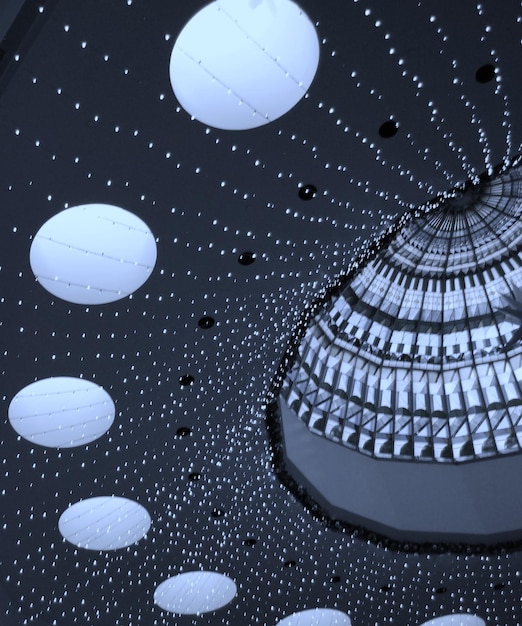Are We Living in a Simulation? An In-depth Exploration of the Philosophical Debate
The question of whether we are living in a simulation has been a topic of intense philosophical debate for decades. This hypothesis, also known as the simulation theory, suggests that reality, as we know it, might not be real at all. Instead, it could be a sophisticated computer simulation created by a highly advanced civilization or even an infinite number of simulations running in a
multiverse
. While this idea may sound far-fetched, many notable scientists and philosophers have lent their support to the theory.
René Descartes, the French philosopher, famously asked, “Cogito, ergo sum” or “I think, therefore I am.” However, he also wondered whether the world outside his own mind might be a deception. This suspicion is at the heart of the simulation theory. Another influential figure in this debate was
Philip K. Dick
, a science fiction author whose work explored the idea that our reality might be an illusion. In his book “Do Androids Dream of Electric Sheep?”, the basis for the film “Blade Runner,” Dick introduced the concept of reality distortion fields, which are areas where reality seems to change based on an individual’s perception.
Neuroscientist
Michael Persinger has conducted experiments suggesting that the brain might be capable of creating its reality. He claimed that he could create hallucinations by stimulating certain areas of the temporal lobe with magnetic fields, which led him to propose the
God Helmet
theory. According to this theory, our perception of God or other supernatural entities could be a product of our brain’s electrical activity. If true, it would mean that our spiritual experiences might not be rooted in an external reality but rather in the internal workings of our mind.
Physicist
Luis Alvarez, along with his son, the cosmologist Wolfram Alvarez, proposed a theory that the universe might be cyclic. They suggested that it could keep collapsing and expanding in an endless loop, giving rise to new universes each time. If this is true, then our universe might be just one of many, leading to the possibility that we could be living in a simulation within another universe.
Further Evidence
Some proponents of the simulation theory point to certain
coincidences
in our universe as evidence. For instance, the constants of physics seem finely tuned for life to exist. If any one of these values were slightly different, then life would not be possible. Some argue that this fine-tuning is too great a coincidence and suggests that the universe was designed with life in mind, possibly by a sophisticated simulation creator.
Another piece of evidence comes from
computer technology
. In just a few decades, we have seen exponential growth in computing power. If this trend continues, it is theoretically possible that we will be able to create simulations indistinguishable from reality within a few centuries. Some argue that our future civilizations might use these simulations for entertainment or as a means of exploring alternate realities.
Despite the intriguing possibilities, the simulation theory remains largely speculative. Proponents admit that there is no definitive evidence to support their claims. However, they argue that if we are living in a simulation, it would explain some of the deepest mysteries of our universe, such as the fine-tuning of physical constants and the nature of consciousness. Until definitive evidence is found, the debate will likely continue.
Conclusion
The simulation theory challenges our perceptions of reality and raises profound questions about the nature of existence. While it remains a controversial idea, its proponents argue that it could potentially explain some of the deepest mysteries of our universe. As technology advances and our understanding of the cosmos deepens, we may eventually find answers to these questions or be forced to reconsider our place in the universe.
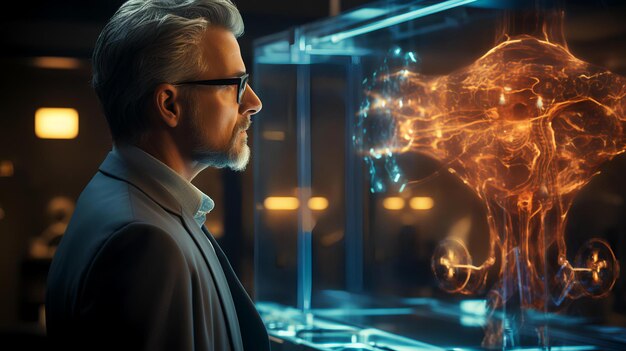
Exploring the Simulation Hypothesis: A Deep Dive into Reality and Consciousness
The simulation hypothesis, a thought-provoking concept that has captured the imagination of philosophers and scientists alike, suggests that our reality is not authentic but rather a highly advanced simulation. This idea, while not new, has gained renewed attention in recent years due to technological advancements and the growing belief that we may soon have the capability to create simulated realities.
Origins of the Simulation Hypothesis
The simulation hypothesis can be traced back to ancient philosophers like Plato and Descartes, who questioned the nature of reality. However, it was not until the late 20th century that the idea gained mainstream attention with the work of philosophers like Nick Bostrom and J.M.E. McTaggart. In his 2003 paper “Are You Living in a Computer Simulation?”, Bostrom argued that if advanced civilizations were able to run simulations of their past, we would most likely be living in one. McTaggart, on the other hand, proposed that time itself is an illusion and that the universe is a static block, which paved the way for the idea that our reality could be a simulation.
Why Does This Debate Matter?
Understanding the simulation hypothesis is crucial in our quest to comprehend reality and consciousness. If we are living in a simulation, it raises fundamental questions about the nature of existence, free will, and the meaning of life. It also challenges our assumptions about reality and forces us to reconsider what we take for granted. Furthermore, the advancement of technology, particularly in the field of virtual reality and artificial intelligence, brings us closer to the possibility of creating simulated realities. Thus, engaging with this debate can help us better understand ourselves and our place in the universe.
A Closer Look at the Implications of the Simulation Hypothesis
Some argue that if we are living in a simulation, it would call into question our perception of free will, as every aspect of our existence could be predetermined by the rules of the simulation. Others suggest that this hypothesis could provide an explanation for seemingly unexplainable phenomena, such as near-death experiences or unexplored corners of the universe. However, it is also important to consider the limitations and potential pitfalls of this hypothesis, such as the lack of empirical evidence and the possibility that advanced civilizations might not even bother creating simulations in the first place.
Exploring the Frontiers of Reality and Consciousness
As we continue to push the boundaries of science and technology, the simulation hypothesis serves as a reminder that our understanding of reality is far from complete. It challenges us to question our assumptions and to explore new ways of thinking about the world around us. Whether we ultimately prove or disprove this hypothesis remains to be seen, but engaging in the debate is an essential part of the journey towards a deeper understanding of reality and consciousness.
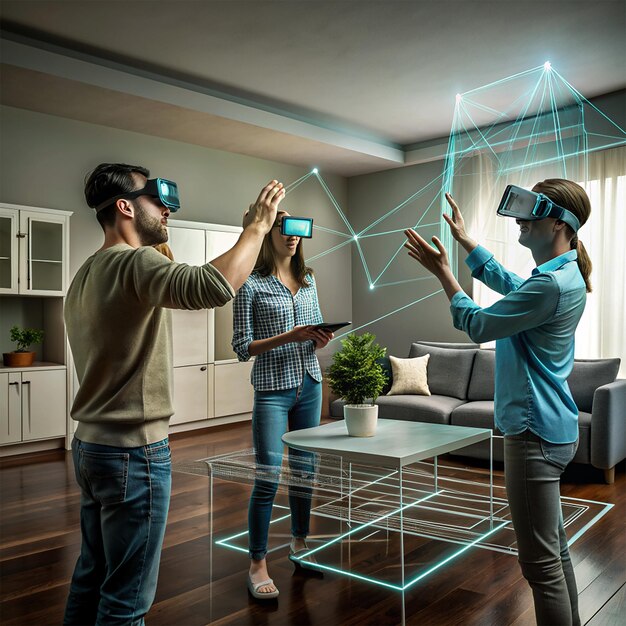
Understanding the Simulation Hypothesis
The simulation hypothesis is a philosophical proposition that suggests our reality could be a simulated or virtual construct, a complex computer simulation created by an advanced civilization or consciousness. This hypothesis has gained renewed interest with the rapid advancements in virtual reality (VR) and computer technology.
Definition and explanation of the simulation hypothesis
The simulation hypothesis proposes that our universe, including all physical objects and conscious beings, might be a sophisticated computer simulation. This notion challenges the traditional understanding of reality as an objective, physical phenomenon. Instead, it suggests that our perceptions and experiences may be indistinguishable from a well-designed simulation.
Description of how it relates to virtual reality and computer technology
The development of increasingly advanced VR systems and computer technology has fueled the interest in the simulation hypothesis. As we create more realistic simulations, it becomes plausible that a highly advanced civilization could have created our reality as a simulation to explore or entertain themselves.
Different versions of the simulation hypothesis
The strong simulation argument (everything is a simulation)
The strong simulation hypothesis, also known as the “perfect simulation” argument, suggests that every aspect of our reality, including conscious beings, is a part of an elaborate computer simulation. This perspective proposes that if we could analyze the fundamental laws of physics and mathematics in our universe, we would find evidence that they are encoded as algorithms.
The weak simulation argument (our reality could be a simulation, but we cannot know for sure)
The weak simulation hypothesis proposes that our reality might be a computer simulation, but it does not claim this with absolute certainty. Instead, proponents of this viewpoint acknowledge the limitations of human knowledge and consider that our reality could be a simulation created by an advanced civilization or consciousness.
Implications of the simulation hypothesis on philosophy and science
Discussion on epistemology, metaphysics, and anthropology
The simulation hypothesis raises profound philosophical questions regarding the nature of reality, consciousness, knowledge, and our place in the universe. If our reality is a simulation, it challenges traditional epistemology by questioning the reliability of our senses and perceptions. Metaphysically, it challenges us to reconsider the relationship between mind and matter. Anthropologically, it raises questions about the purpose of our existence within a simulated environment.
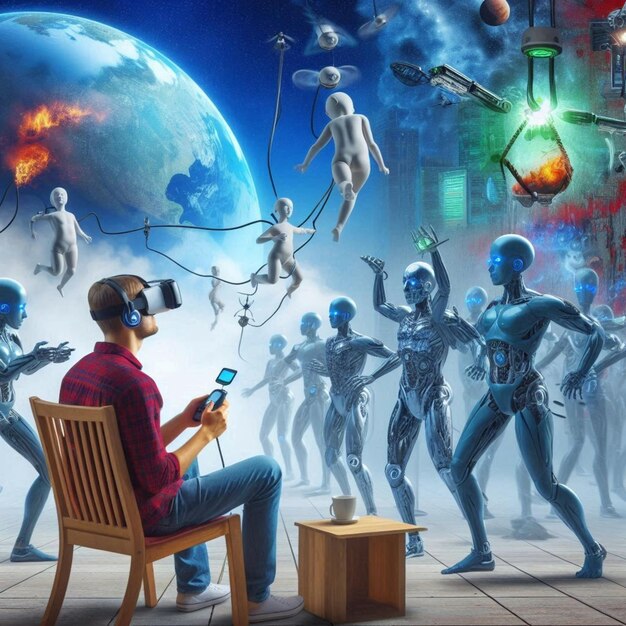
I Arguments for the Simulation Hypothesis
The Simulation Hypothesis, a philosophical concept that suggests our reality might be a simulation created by an advanced civilization or intelligence, has gained significant attention in various fields. Several compelling arguments have been put forward to support this hypothesis.
The Technological Argument:
One of the strongest arguments for the Simulation Hypothesis is based on our technological progress. With exponential technological growth, it’s not unreasonable to assume that we will eventually have the capability to create simulated universes indistinguishable from our own reality. Exponential growth, a trend where the rate of change increases over time, has been observed in various technological aspects like computing power and data storage. This implication, if extrapolated, suggests that we might be able to create simulated realities in the future.
The Anthropological Argument:
Another argument for the Simulation Hypothesis comes from the anthropological perspective. The universe seems fine-tuned for human existence, which suggests an intelligent design. The probability of our existence given the vast number of possible universes is incredibly low. For instance, if we were to calculate the odds for the precise arrangement of fundamental constants required for complex life to evolve, it’s an exceedingly rare occurrence. This fine-tuning argument strengthens the case for a simulated reality.
The Psychological Argument:
The psychological argument for the Simulation Hypothesis revolves around our deep-seated belief in an underlying reality. Human beings have a strong intuition that there’s an objective, unchanging world out there, despite the subjective nature of our perception. This belief might be an illusion, as our perception could be the only reality we ever experience. The nature of perception, a complex and fascinating topic in psychology, further complicates our understanding of the relationship between reality and illusion.
The Theoretical Argument:
Lastly, there are several theories in physics and mathematics that hint at a multilayered or simulated nature of our universe. String theory, for example, proposes the existence of multiple dimensions beyond the three spatial and one temporal dimension we’re familiar with. In a similar vein, quantum mechanics suggests that reality is probabilistic rather than deterministic, adding another layer of complexity to our understanding of the universe. The holographic principle, which suggests that all the information in a three-dimensional volume can be encoded on its surface, further strengthens this argument.
In conclusion, the Simulation Hypothesis is not a far-fetched concept when we consider various arguments based on technological progress, anthropological evidence, psychological intuition, and theoretical frameworks. These arguments provide compelling reasons to believe that our reality might be a simulation, challenging our fundamental understanding of the nature of existence.
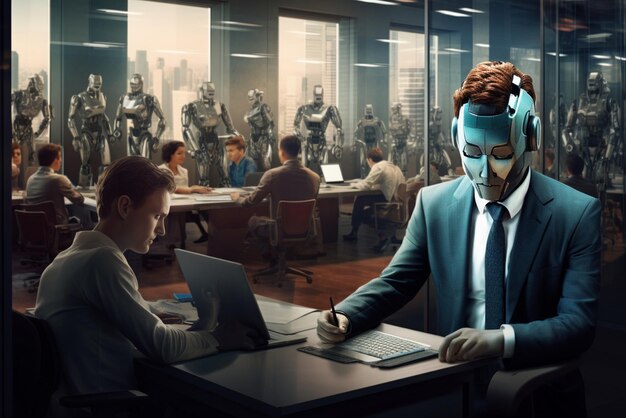
Arguments Against the Simulation Hypothesis
The Occam’s Razor Argument:
The Occam’s Razor argument is a common objection raised against the simulation hypothesis. This philosophical principle suggests that the simplest explanation is usually the correct one, and adding unnecessary complexity to our understanding of reality should be avoided. Throughout history, this argument has been used to reject alternative theories that seemed unnecessarily complicated. In the context of the simulation hypothesis, some argue that our current understanding of reality, with all its complexities and mysteries, is simpler than entertaining the idea of being living in a simulated universe. This argument questions whether the benefits of accepting the simulation hypothesis outweigh the added complexity it brings to our understanding of reality.
The Epistemological Argument:
Another argument against the simulation hypothesis is epistemological. This argument asserts that we cannot know for sure if we are living in a simulation, and it is not a productive line of investigation. Humans possess limited knowledge and understanding of the universe and its underlying principles. Although scientific progress has brought us far, there are still many unsolved mysteries in physics, mathematics, and other fields. The simulation hypothesis, being a theory beyond our current grasp, may not yield any fruitful results or practical applications in the near future. Instead of focusing on this speculative notion, it might be more productive to direct our efforts towards addressing real-world problems and expanding our current knowledge base.
The Ethical Argument:
The ethical argument against the simulation hypothesis asserts that focusing too much on this hypothesis can distract us from addressing real-world problems. The idea of living in a simulated universe may be intriguing, but it does not change the fact that there are numerous pressing issues in our current reality that require our attention. Climate change, poverty, inequality, and various other challenges facing humanity should be our primary focus. Engaging in philosophical speculation about the nature of reality may not only be a distraction but also divert resources and efforts away from addressing real-world issues. By improving our current reality, we can potentially create a better world for all beings, whether they are living in the base reality or in a potential simulation.
In Conclusion:
While the simulation hypothesis is an intriguing idea, it faces several compelling arguments. The Occam’s Razor argument raises questions about adding unnecessary complexity to our understanding of reality, the epistemological argument questions the practicality of investigating a hypothesis beyond our current grasp, and the ethical argument emphasizes the importance of addressing real-world problems in our current reality. Despite its potential allure, it is essential to consider these arguments when evaluating the merits and implications of the simulation hypothesis.
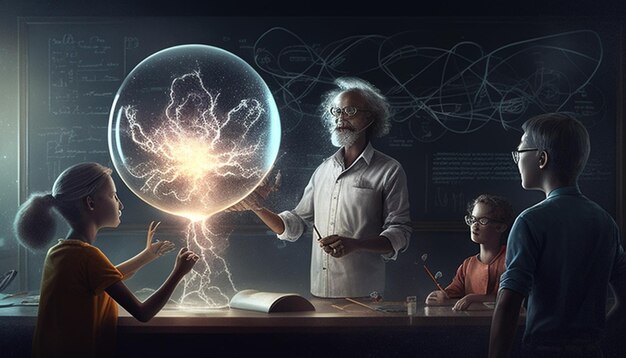
Conclusion
Summary of the main points discussed in the debate: In this thought experiment, we have explored two contrasting perspectives on reality: the simulation hypothesis and the base reality theory. The simulation hypothesis suggests that our reality could be a simulated construct, while the base reality theory asserts that our existence is real and unaltered. Each perspective raises intriguing questions concerning the nature of reality, consciousness, and the limits of scientific inquiry.
Reflection on the implications of the simulation hypothesis for philosophy, science, and our understanding of reality:
If the simulation hypothesis were true, it would have profound consequences for various academic disciplines. Philosophically, it would challenge our fundamental assumptions about reality and consciousness. Scientifically, it would raise questions about the validity of empirical evidence in determining the true nature of reality. Our understanding of existence as we know it would be turned upside down, leading us to reevaluate our place in the universe.
Final thoughts on why the debate is important, regardless of the outcome:
The significance of this debate lies not only in its potential implications for philosophy and science but also in its capacity to provoke thought and stimulate intellectual curiosity. Regardless of whether the simulation hypothesis is ultimately proven or disproven, it challenges us to think deeply about reality and our place in it. Engaging with such thought experiments allows us to expand our understanding of the world around us and fosters a sense of wonder and exploration that can inspire new discoveries and innovations.


